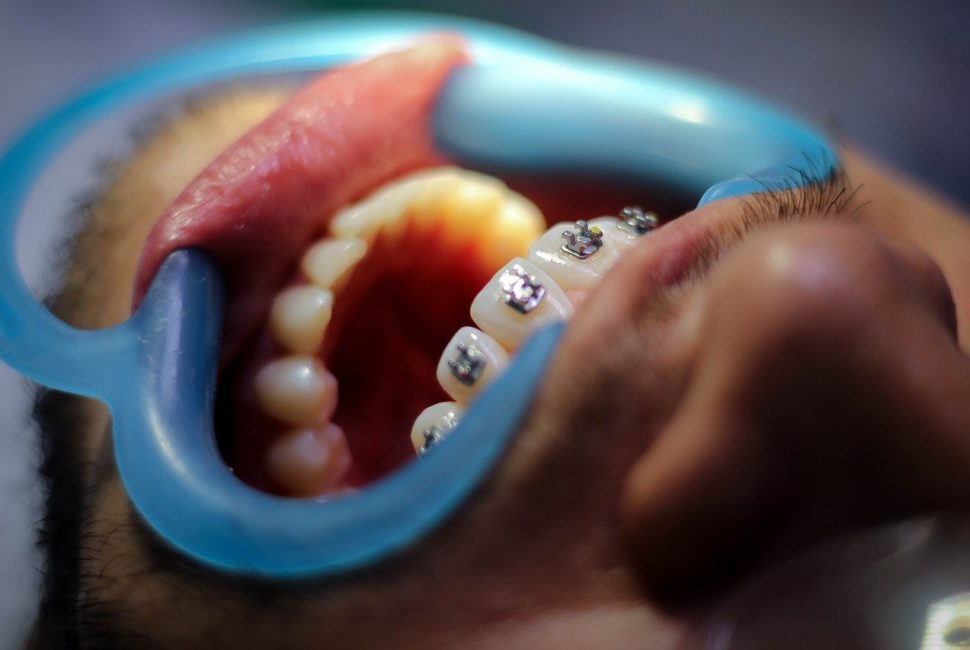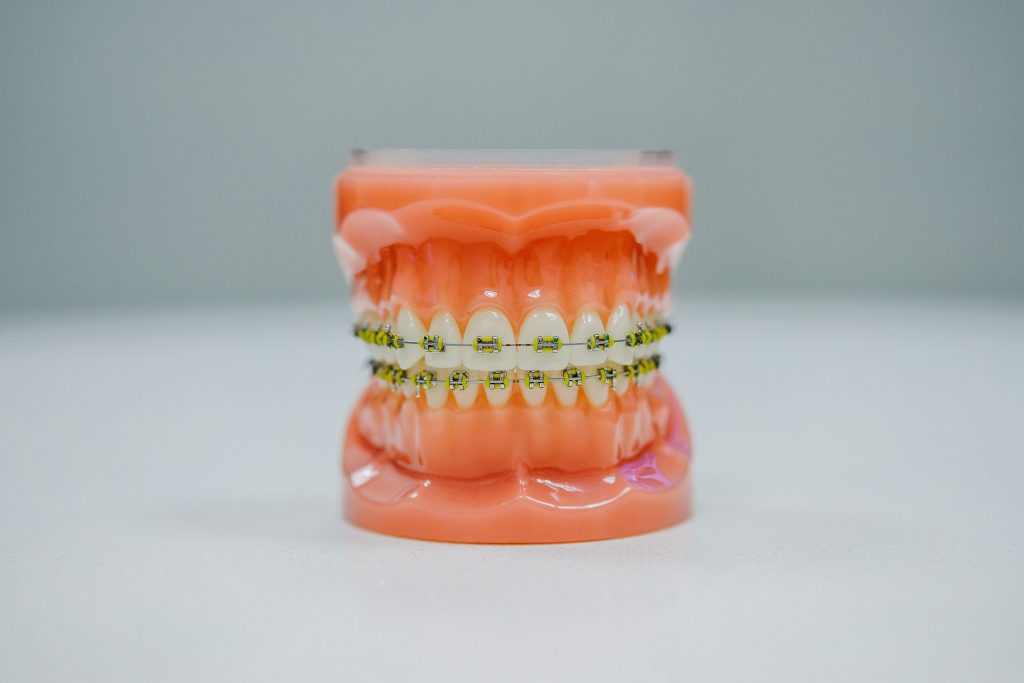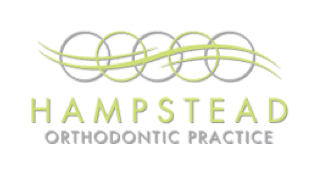Swollen Gums With Braces: The Causes & Treatments

When wearing dental braces for the first time, you may have found that your gums appear red, swollen and inflamed.
This can often happen as braces slowly adjust and move your teeth over time.
However, it can be a cause for concern if your gums show signs of conditions such as gingivitis.
In this article, you will discover the most common causes of swollen gums with braces and preventative treatments to make wearing braces more bearable.
What Causes Swollen Gums with Braces?
There are several reasons why your gums may have become swollen. Here are some typical signs of swollen gums with braces:
1. Teeth Movement
During the process of your orthodontic treatment, it may not be visible that your teeth are moving. However, the gradual constant pressure that is applied to your braces after having them tightened during your orthodontist appointments can cause changes around your gums and jawbone. Gum swelling and pain are common side effects of wearing braces for the first time. Braces will frequently need to be adjusted, usually once a month, which may cause further discomfort to your gums.
2. Braces Adjustments
Braces will frequently need to be adjusted, usually once a month, which may cause further discomfort to your gums.
When your orthodontist tightens your braces, they’re essentially applying more force to your teeth to continue their movement. This pressure triggers your body’s natural inflammatory response, which can cause temporary soreness and swelling in the surrounding gums.
While mild discomfort is normal, the swelling typically peaks within 24-48 hours and gradually subsides within 3-5 days. If the swelling persists or worsens, consult your orthodontist.
3. Gingivitis
Braces can often create small spaces around your teeth, as they are constantly moving. Food and dental plaque can become easily trapped in these spaces, causing bacteria to grow and induce inflammation. Braces themselves can make it tricky to clean teeth, making it harder for your toothbrush to reach certain areas of your teeth. This obstruction can lead to the development of plaque build-up, gingivitis, or swollen gums. Gingivitis is commonly known as the first stage of gum disease where gums resultantly appear red and swollen and could potentially bleed more easily.
4. Gingival Enlargement
Gingival Enlargement is also known as gingival hyperplasia or hypertrophy and is a result of an overgrowth of gum tissue around the teeth. This can be triggered by certain medications or rare hereditary conditions as a response to the plaque that piles up around the teeth. Symptoms of gingival enlargement can make the gums feel soft and tender, whilst simultaneously inducing pain.
5. Food Traps and Plaque Buildup
Brackets and wires create numerous nooks and crannies where food particles and plaque can easily get trapped. Plaque is a sticky film of bacteria that thrives on these particles, releasing toxins that irritate and inflame the gums.
If not removed regularly, plaque buildup can lead to gum disease, causing further swelling, bleeding, and potential bone loss.
How to Treat Swollen Gums When Wearing Braces?

Fortunately, there are different methods to reduce swollen gums by implementing effective oral hygiene and home remedies that you can use straight away. Here are several ways to relieve swollen gums:
1. Brushing your teeth.
Brushing your teeth is imperative to practising good oral hygiene and reducing your risk of swelling. Brushing your teeth for at least two minutes in both the morning and evening is sufficient. However, we do advise brushing more if gums are severely swollen.
We recommend brushing with an electric toothbrush to help reach difficult areas such as around brace brackets and the back of the teeth. Focus on meticulous oral hygiene after meals and before bed. Use a soft-bristled toothbrush designed for braces to reach around brackets and wires effectively.
2. Avoid eating tough foods.
Abstaining from eating tough foods which are hard to chew and can easily get trapped in between your braces can help reduce plaque build-up and swelling. Tough foods to avoid are as follows: steak, corn on the cob, sweets, and popcorn. For more information, check out our guide on what to eat with braces.
3. Rinsing.
Regularly rinse your mouth daily with salt water or an antibacterial mouthwash after brushing your teeth. If swelling persists, home remedies such as rinsing with a half teaspoon of warm salt water, several times a day, can be a quick solution to healing inflammation.
4. Flossing.
Flossing in between your teeth daily is another way of removing plaque build-up and irritation. We recommend using waxed floss to prevent the floss from tearing and catching onto your brace brackets.
You can even consider interdental brushes or water flossers for thorough cleaning between teeth. Be patient and persistent with your cleaning routine, even if it takes longer at first.
5. Over-the-counter pain relievers
While over-the-counter pain relievers like ibuprofen can help manage discomfort associated with swollen gums after braces adjustments, it’s important to understand their limitations and use them safely.
Remember, the swelling itself is usually temporary, so the pain relief provided by ibuprofen is meant to manage discomfort during that period. Ibuprofen masks the pain but doesn’t address the inflammation causing it. Maintaining good oral hygiene and following your orthodontist’s instructions are crucial for long-term relief.
Final Advice
When wearing braces, it is normal to expect discomfort and soreness. By using the above-recommended methods in your daily routine, you can achieve healthy oral hygiene and eliminate the risk of gum disease.
However, it is important to pay attention to signs of continuous or severe symptoms of swollen gums. If you have braces and are experiencing persistent swelling, contact us today and book a free online consultation. Or simply give us a call on 020 3811 7625.
Our team of trained professionals can provide you with high-quality services to support you during your journey of wearing braces.


